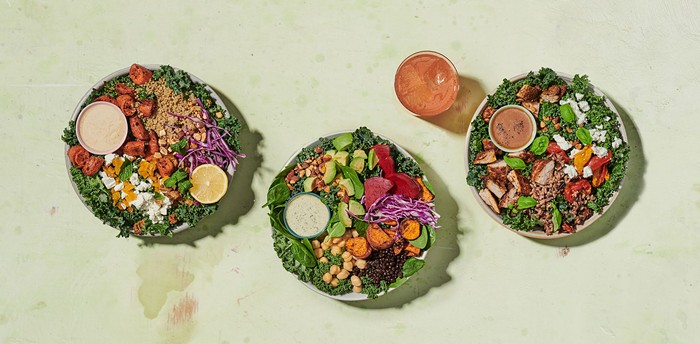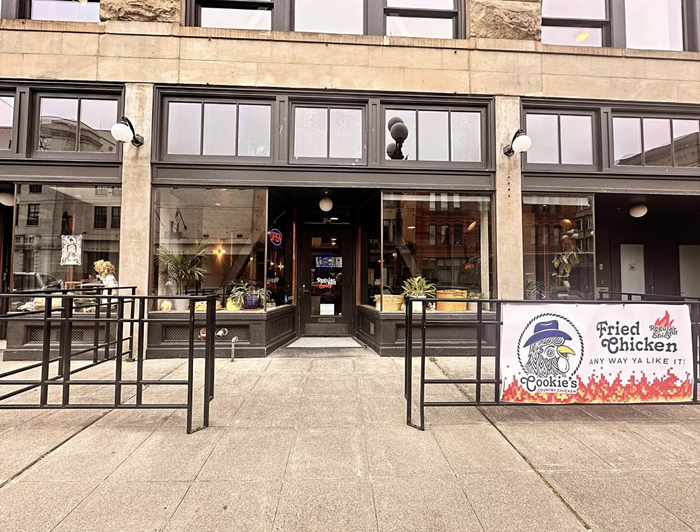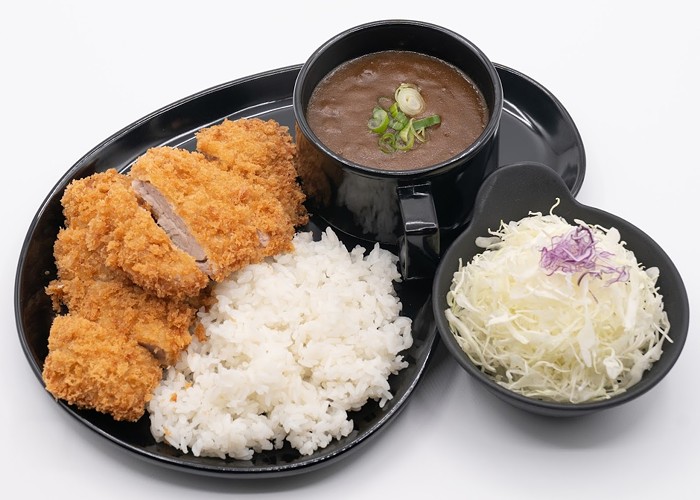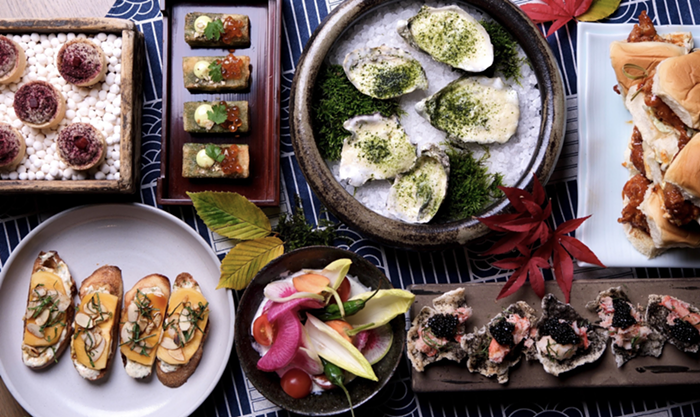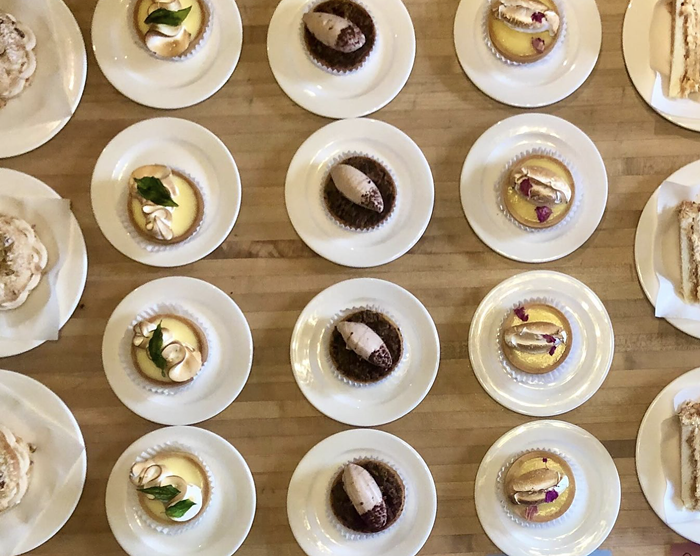
When I was in high school, after class, we’d go to this dark, dusty mini-mart next door that had spooky things like one whole chicken in a can and also a fryer case featuring jojos. They were like 50 cents a pound in 1994, and when you’re a teenager, you can inhale them endlessly, without a single synapse firing in between them, which is what we did. Get a two-pound bag and start crammin'. Steamed potato filling up your sinuses. That store’s long gone, but it had the greatest jojos I’ve tasted before or since.
If you’re new or something, jojos are those little tater wedges that are breaded, dusted with Lawry’s, and not deep-fried but PRESSURE-fried. The inside is light and fluffy like a baked potato; the outside’s crispy and slightly caramelized, with those thick, knurled ends. They’re orange. Potatoier than a french fry. They are not “home fries” or “breakfast potatoes,” and you may not make them in a skillet—that’s something else. Usually, they’re cooked in the same oil as fried chicken and are essentially chickeny themselves. Jojos are fried chicken’s little sister, basically, sharing its DNA and tagging along whenever they can.
You get them from a supermarket or mini-mart, ideally one inside a gas station, out of a foggy cellophane bag. Or in truck stops and roadhouses, maybe a shack on a rural highway with a sign that has the word "broasted" on it. That’s where your jojos are.
Someone recently tried to tell me that several places in the Midwest think they’re the birthplace of jojos, and I’d understood them to be a Northwestern thing. So I did some reading about it.
Let’s start where jojos did: with pressure fryers.
First designed to cook meat, pressure fryers use screamingly hot oil and 5-15 pounds of pressure PSI to render the outsides of things crispy while locking their juicinesses inside. Inspired by pressure cookers that use water, not oil, “Colonel” Harland Sanders was the first to experiment with modifying them into fryers in the 1940s—an extremely dangerous, ill-advised art that sometimes involved 375-degree oil explosions. It panned out for Sanders, though; he ended up with a faster cooking time for his fried chicken and a way more delicious product.
Over a decade later, in the mid-50s, the Broaster Company of Beloit, Wisconsin, began selling pressure fryers. Ohio-based manufacturing company Henny Penny was the first to patent them for commercial use in 1957. So pressure fryers themselves are a Midwestern creation. Sure.
However. It’s a Vancouver, Washington-based salesman named Nick Nicewonger (oh my god) who’s considered the father of the jojo. In 1958, Nicewonger was distributing pressure fryers around the Northwest for a manufacturer called Flavor-Crisp, and at a restaurant expo that year, he was set up next to a booth of potato hawkers from Idaho. It writes itself: by tossing potato wedges in the oil, he discovered a cheap, quick way to demonstrate his fancy space-age frying machine—and a useful one too. “A potato will clean up the oil real nice,” Nicewonger’s son, Paul, told Willamette Week in 2017.
These test wedges initially got thrown out. But at some point, someone was like hey, that smells like food, and Nicewonger put them on trays for guests to sample. When pressured (heh) to name them, he blurted out, “Jojos,” and a star was born. This happened somewhere in the PNW, likely the Portland metro area, which was Nicewonger’s focus.
The Midwest, meanwhile, is trying to front. A dude in Omaha who’s called “the oral historian of the jojo” tells an identical story to Nicewonger’s, except it’s several salesmen, they’re nameless, they’re in Chicago, and it takes place “around 1962 or 1963,” several years after Nicewonger’s account. Somewhere along the way '62 or '63 becomes '61.
Sounds fuzzy, man. I self-servingly choose to believe Nicewonger Junior, who has a few more details and sticks by his facts.
In a miserable world of chia pudding and fitness water, it’s increasingly hard to find jojos with the correct level of greasiness. The Shell stations on Beacon Avenue and Corson Avenue have them, obviously. Hop-In Grocery in Renton, Quick Pack Food Mart in the Central District, and Seward Park Grocery on Rainier have killer jojos as well. Quick Pack, celebrated for their chicken, uses Russets, so the jojos are extra-long and chunky, more akin to a jacket spud. You want hot sauce with these, to break up the big, lovely clouds of potato.

In league with the (temporarily closed) Duck Island Ale House in Greenlake, the Marco Polo Bar and Grill in Georgetown and the Monte Carlo Pub in Kent also rank as roadhouses with correctly greasy, crusty jojos. Christ, the Duck’s chicken and jojos were just magnificent. Please reopen soon, Duckie.
Anyway, thanks, Mister Nicewonger, for being somewhere in the Northwest when you decided to let people eat your demo trash, so Seattle can cash in on the local cred. And for not naming them after yourself so I don’t have to say “nicewonger” to strangers at gas stations. Good job. Those things are great.
Some spots to find jojos:
Hop in Grocery and Deli
5325 NE 4th St Renton, WA 98059Quick Pack Food Mart
2616 S Jackson St, Seattle, WAMarco Polo Bar & Grill
5613 4th Ave S, Seattle, WAMonte Carlo Pub
1617 W Meeker St, Kent, WADuck Island Ale House (temporarily closed)
7317 Aurora Avenue North, Seattle, WA

